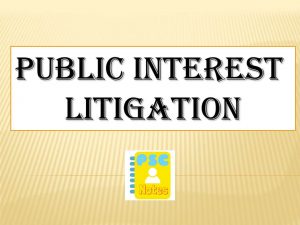Provisions of SC/ST Atricities act,
The Scheduled Castes and Tribes (Prevention of Atrocities) Act, 1989 is an Act of the Parliament of India enacted to prevent atrocities against scheduled castes and scheduled tribes. The Act is popularly known as POA, the SC/ST Act, the Prevention of Atrocities Act, or simply the Atrocities Act.
Article 17 of Indian Constitution seeks to abolish ‘untouchability’ and to forbid all such practices. It is basically a “statement of principle” that needs to be made operational with the ostensible objective to remove humiliation and multifaceted harassments meted to the Dalits and to ensure their fundamental and socio-economic, political, and cultural rights.
Objectives of the act 
The basic objective and purpose of this more comprehensive and more punitive piece of legislation was sharply enunciated when the Bill was introduced in the Lok Sabha:
“Despite various measures to improve the socio-economic conditions of the SCs and STs, they remain vulnerable… They have, in several brutal incidents, been deprived of their life and property… Because of the awareness created… through spread of education, etc., when they assert their rights and resist practices of untouchability against them or demand statutory minimum wages or refuse to do any bonded and forced labour, the vested interests try to cow them down and terrorise them. When the SCs and STs try to preserve their self-respect or honour of their women, they become irritants for the dominant and the mighty… Under the circumstances, the existing laws like the Protection of Civil Rights Act 1955 and the normal provisions of the Indian Penal Code have been found to be inadequate to check and deter crimes against them committed by non-SCs and non-STs… It is considered necessary that not only the term ‘atrocity’ should be defined, but also stringent measures should be introduced to provide for higher punishment for committing such atrocities. It is also proposed to enjoin on the States and Union Territories to take specific preventive and punitive measures to protect SCs and STs from being victimized and, where atrocities are committed, to provide adequate relief and assistance to rehabilitate them”.
The objectives of the Act, therefore, very clearly emphasise the intention of the Indian state to deliver justice to SC/ST communities through affirmative action in order to enable them to live in society with dignity and self-esteem and without fear, violence or suppression from the dominant castes.
The salient features of the Act are:
- Creation of new types of offences not in the Indian Penal Code (IPC) or in the Protection of Civil Rights Act 1955 (PCRA).
- Commission of offences only by specified persons (atrocities can be committed only by non-SCs and non-STs on members of the SC or ST communities. Crimes among SCs and STs or between STs and SCs do not come under the purview of this Act).
- Defines various types of atrocities against SCs/STs.
- Prescribes stringent punishment for such atrocities.
- Enhanced punishment for some offences.
- Enhanced minimum punishment for public servants.
- Punishment for neglect of duties by a public servant.
- Attachment and forfeiture of property.
- Externment of potential offenders.
- Creation of Special Courts.
- Appointment of Special Public Prosecutors.
- Empowers the government to impose collective fines
- Cancellation of arms licences in the areas identified where an atrocity may take place or has taken place (Rule 3iii) and seize all illegal fire arms (Rule 3iv).
- Grant arms licences to SCs and STs.
Defining ‘atrocity’
- Atrocity is “an expression commonly used to refer to crimes against Scheduled Castes (SCs) and Scheduled Tribes (STs) in India”.
- It “denotes the quality of being shockingly cruel and inhumane, whereas the term ‘crime’ relates to an act punishable by law”.
- It implies “any offence under the Indian Penal Code (IPC) committed against SCs by non-SC persons, or against STs by non-ST persons. Caste consideration as a motive is not necessary to make such an offence in case of atrocity”.
- It signifies “crimes which have ingredients of infliction of suffering in one form or the other that should be included for reporting”. This is based on the assumption that “where the victims of crime are members of Scheduled Castes and the offenders do not belong to Scheduled Castes caste considerations are really the root cause of the crime, even though caste considerations may not be the vivid and minimum motive for the crime”.
The Act lists 22 offences relating to various patterns of behaviours inflicting criminal offences for shattering the self-respect and esteem of SCs and STs, denial of economic, democratic and social rights, discrimination, exploitation and abuse of the legal process, etc.
Section 3 of the Act lists the criminal offences and the punishments. It contains:
- 19 offences in their own right (Section 3(1) contains 15 subsections with an equal number of offences. Section 3(2) contains four subsections with offences).
- two derived offences (sections 3(2)(vi) and 3(2)(vii)). The derived offences are based on the offences given in the SC/ST Act. They only come in the picture provided that another offence under the SC/ST Act has been committed.
- one subsection that increases the punishment for certain offences under the IPC (Section 3(2)(v)).
These protections can be broadly divided into protection from:
- social disabilities (denial of access to certain places and to use customary passage and to get water from any spring, reservoir or any other source).
- personal atrocities (forceful drinking or eating of inedible or obnoxious substance, against stripping, outrage of modesty, sexual exploitation, injury or annoyance). atrocities affecting properties (land, residential premises, existing properties).
- malicious prosecution.
- political disabilities. economic exploitation


